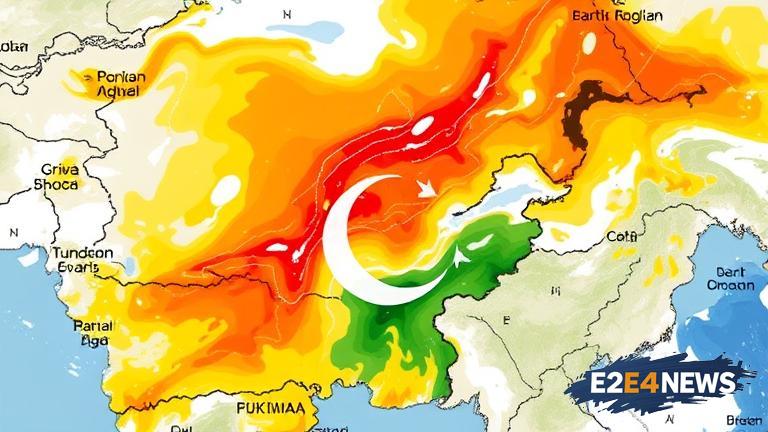Pakistan has issued a glacial flood warning as heavy monsoon rains continue to batter the country, causing widespread flooding and landslides. The warning was issued by the Pakistan Meteorological Department, which stated that the heavy rainfall has caused a significant increase in the water level of the country’s rivers and streams. The department warned that the glacial lakes in the northern regions of the country are at risk of bursting, which could lead to catastrophic flooding downstream. The monsoon rains have been particularly heavy this year, with some areas receiving over 200% more rainfall than usual. The flooding has already caused significant damage to infrastructure, including roads, bridges, and homes. The government has issued warnings to people living in low-lying areas to evacuate immediately, and has set up relief camps for those affected by the flooding. The Pakistan Army has also been deployed to assist in the relief efforts. The glacial flood warning has been issued for several districts in the northern regions of the country, including Gilgit-Baltistan and Khyber Pakhtunkhwa. The warning has been issued due to the increased risk of glacial lake outburst floods (GLOFs), which occur when a glacial lake bursts, releasing large amounts of water downstream. GLOFs can be particularly devastating, as they can cause widespread flooding and landslides, and can also affect the water supply and hydroelectric power generation. The Pakistan Meteorological Department has warned that the heavy rainfall is expected to continue for the next few days, which could further exacerbate the flooding situation. The government has urged people to remain vigilant and to follow the instructions of the authorities. The flooding has also affected the country’s agricultural sector, with crops and livestock being damaged or destroyed. The government has announced plans to provide compensation to farmers who have been affected by the flooding. The international community has also offered assistance to Pakistan to help with the relief efforts. The United Nations has announced plans to provide aid to Pakistan, including food, shelter, and medical supplies. The European Union has also offered assistance, including financial aid and technical expertise. The flooding has highlighted the need for more effective disaster management and mitigation strategies in Pakistan. The government has announced plans to review its disaster management policies and to implement new measures to reduce the risk of flooding and other natural disasters. The flooding has also raised concerns about the impact of climate change on Pakistan’s environment and economy. The country is considered to be one of the most vulnerable to climate change, due to its geography and climate. The government has announced plans to increase its efforts to address climate change, including reducing greenhouse gas emissions and implementing measures to adapt to the changing climate. The flooding has also affected the country’s economy, with the agricultural sector being particularly affected. The government has announced plans to provide support to the agricultural sector, including financial aid and technical assistance. The flooding has also raised concerns about the impact on the country’s infrastructure, including roads, bridges, and dams. The government has announced plans to review its infrastructure development plans and to implement new measures to reduce the risk of damage from natural disasters.
